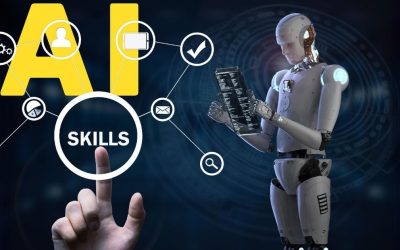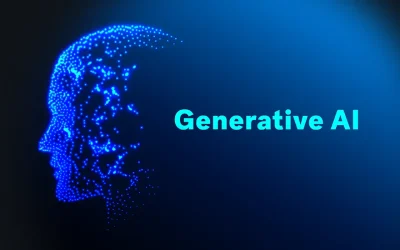AI and ML roles are among the hardest to land. The interview process stretches across several rounds and often feels overwhelming. Each round checks a different skill, from coding speed to problem-solving depth. Candidates spend months on practice platforms, math drills, and project reviews. Yet many still feel unprepared when the real interview comes.
The main challenge is not just the content, but the mix of skills tested. A candidate may be strong in theory but weak in coding under time pressure. Another may code fast but struggle to explain model choices. Interviewers look for balance across math, coding, and clear reasoning. That mix makes the bar high. Similarly, the impacto de bonos en juego can significantly influence player strategies and decisions. Bonuses can affect how players approach risk, how much they are willing to wager, and how long they stay engaged, all of which contribute to the overall gaming experience and outcomes.
Why AI and ML Interviews Are So Tough
AI and ML roles demand a mix of math, coding, and practical knowledge. Interviewers want to see strong coding skills, but that is not enough. They also test math, probability, and logic. Candidates must also explain how models work in clear words.
Interviewers look for more than surface answers. They want to see clear thought steps. They check if the candidate can handle problems they have never seen before. This is why many strong resumes still lead to rejection.
FAANG mentors reveal the real skills interviewers test: coding speed, math under pressure, and clear reasoning.Magnimind gives you step-by-step prep with mock interviews, mentor feedback, and real projects that match what hiring managers want.Train smarter, build confidence, and walk into your next AI/ML interview ready to win.
Key Areas Tested in AI and ML Interviews
Mentors agree that AI and ML interviews cover four big areas:
1. Coding Skills
Candidates often face timed coding rounds. These tests may ask for sorting, searching, graph problems, or data structures. Using Python is common. Candidates who rely only on pre-built libraries often struggle, since interviewers want to see core logic.
2. Math Foundations
Linear algebra, calculus, and probability show up often. A candidate might need to explain how a matrix changes in a model or how to find the probability of an event. Mentors stress that these math questions are not just theory. They connect to real ML cases.
3. Machine Learning Methods
Expect questions about regression, classification, clustering, and neural networks. Interviewers may ask about the strengths and limits of each method. They want candidates to explain why one model fits a case better than another.
4. System and Case Studies
Some interviews include open-ended cases. The interviewer might ask how to design a system that predicts outcomes from large data. Here, communication matters as much as technical skill.
Great on paper but freeze in interviews?
You’re not alone. AI/ML candidates fail for speed, clarity, and pressure.
Magnimind mentors train you to think out loud, code fast, and explain choices with confidence.
Common Mistakes Candidates Make
Mentors often see candidates fail for the same reasons:
- Weak coding speed: Candidates know the right method but cannot write code fast enough.
- Overuse of libraries: Some skip core logic by relying only on packages.
- Poor math recall: Many cannot explain basic probability or linear algebra during pressure.
- Weak communication: Candidates answer with the result but skip showing the process.
These mistakes are common but avoidable with the right practice.
The Role of Mock Interviews
Mock interviews give a safe space to practice under pressure. Mentors run these sessions with real timing and real follow-up questions. This makes the setting feel close to the real thing.
After the session, mentors give feedback right away. They point out gaps in coding, weak spots in math, or unclear answers. This feedback is what helps candidates grow faster than studying alone.
Mock interviews also reveal hidden gaps. Some candidates think they are strong in math, only to freeze under time pressure. Others code well but cannot explain design choices. Once gaps are clear, candidates can train in a focused way.
How Mentors Prepare Candidates
Mentors break down prep into steps:
- Coding drills: Daily practice on small problems, then building toward harder ones.
- Math refresh: Quick review of probability, linear algebra, and statistics, applied to small cases.
- ML practice: Working on real projects and explaining model choices aloud.
- Case studies: Tackling open-ended questions, building confidence to explain step by step.
Mentors also help with pressure control. They remind candidates that taking a few seconds to think is normal. What matters is sharing the thought path out loud.
Why Mentorship Matters
Self-study builds knowledge, but mentorship builds focus. Mentors shorten the path by pointing out where time is wasted. They know what skills matter most, and they help candidates cut noise from study plans.
Mentorship also builds confidence. Many candidates fail not because they lack skill, but because nerves take over. With repeated feedback and practice, candidates learn to handle pressure. They walk into interviews ready to show skill, not panic.
Ready to Get Noticed by Top Tech Companies?
Your portfolio is your ticket in. Make it speak louder than your resume.
- Learn what FAANG recruiters actually look for
- Get expert tips on structuring your projects
- Turn your GitHub into an interview magnet
How Magnimind Helps Candidates Break Barriers
Magnimind Academy is based in Palo Alto, at the center of Silicon Valley. The company focuses on career growth in data science and AI. This location offers direct access to the most active hub of tech and hiring.
Magnimind has a strong and active community, with more than 30,000 members across seven meetup groups. This community gives students a strong network, where they can learn, share, and connect with others in the same field.
The programs focus on mentorship. Many instructors have worked in top roles in AI and ML. They know how interviews are shaped, and they give direct training on how to pass them. Students get real-world cases, not just textbook tasks.
Training is always career-focused. The goal is not just learning, but getting ready for interviews and job success. Students leave with projects that show skill, which recruiters and hiring managers want to see.
Magnimind also runs online info sessions through Zoom. This makes programs open to students who work full-time or live outside Palo Alto. The mix of flexibility and quality training gives working professionals a path to move up in their careers.
Why Choose Magnimind
Choosing Magnimind means choosing direct training, real mentorship, and a community that supports career growth. The programs give step-by-step guidance for AI and ML interviews. The location in Silicon Valley gives strong ties to the tech hub.
With Magnimind, candidates do not train alone. They gain access to mentors who know how to prepare, a network of 30,000 peers, and programs built for career results. That is why Magnimind stands out for those ready to move forward in AI and ML careers.
Explore Our Career-Focused Programs
Whether you're starting out or looking to level up, choose the path that aligns with your goals.
Learn tools like SQL, Tableau and Python to solve business problems with data.
See Program OverviewBuild real projects, gain mentorship, and get interview-ready with real-world skills.
See Program Overview

